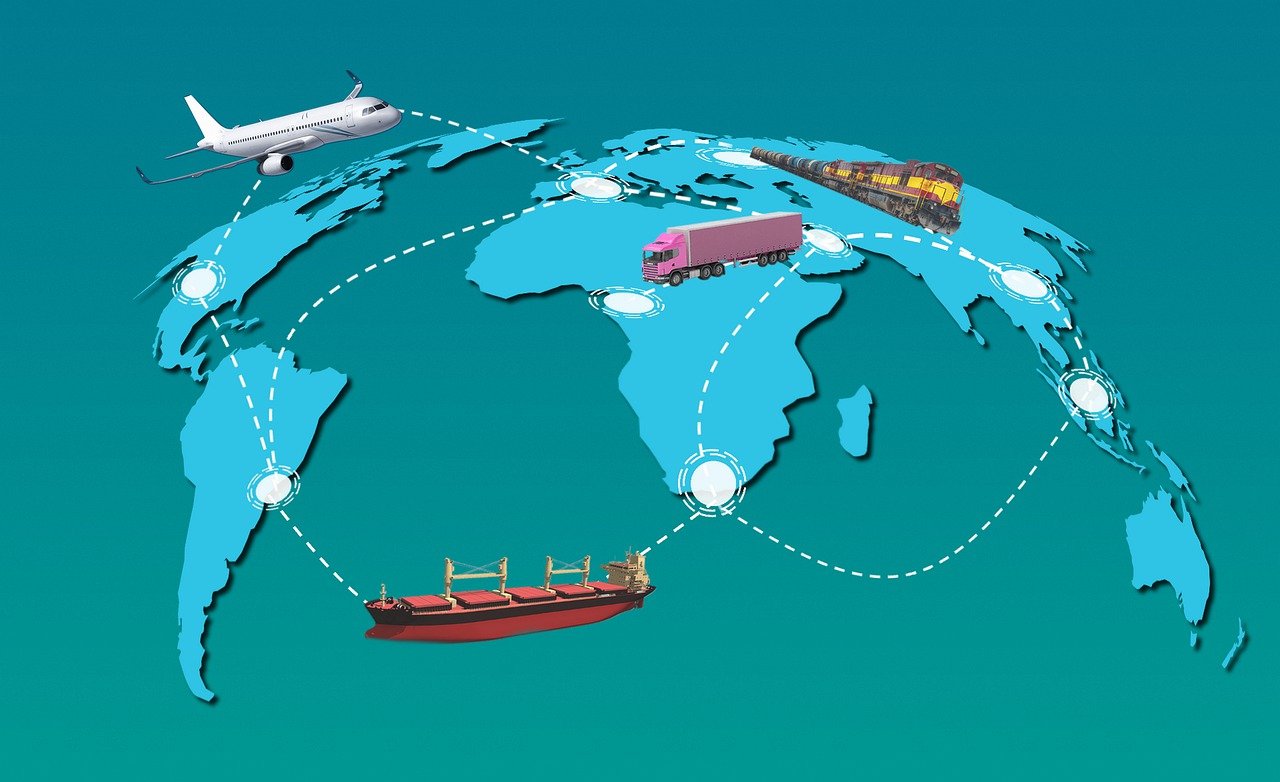There have been various phases in the logistics industry as a number of companies have shifted and updated their services from manual to technological. However, there are still various complexities involved and issues also arise due to the lack of proper management and automation. The majority of logistics businesses have started using mobile applications and have turned to trucking and logistics app development to simplify communication between carriers and shippers, and to optimize routes.
Challenges in the Logistics Industry
The main issue in the logistics industry is related to the type of technologies used by companies, how these companies manage and maintain important data, and how the work process is coordinated. Below are some of the common problems and their solutions in the logistics industry.
Absence of Effective Coordination
One of the biggest problems in the logistics industry is fragmentation and inconsistency because of the number of people involved, including managers, storekeepers, manufacturers, drivers, and users. This makes it difficult to establish centralized control. A possible solution to this problem, however, is trucking and logistics app development that can help in saving, and sharing, information between multiple parties.
A mobile application should include real-time tracking and messaging and the facility to connect with available shippers, because this can eliminate the problem of driving empty trucks. With mobile apps, drivers can also receive orders and get proper access to delivery locations.
Lack of Proper Warehouse Management
A company can lose its good reputation in the market as a result of stock errors or misplaced goods. Errors in barcodes and failures to match the number in the computer can result in a missed opportunity to enter a potentially strong market. With technological advancement, companies are focusing on developing warehouses where robots can stack and load products and also optimize time and space.
Trucking and logistics app development is becoming common in the logistics industry along with advanced features such as voice command, real-time tracking, collection of data and sharing options, as well as other unique features. The wide adoption of robots which can be operated using a mobile application is becoming more commonplace and mobile apps that can identify products as per their delivery priorities and storage requirements are also being developed.
Warehouse security using mobile apps and other technically advanced solutions is another focus area of the logistics business. Mobile apps can help in maintaining records of people entering and leaving a warehouse and provide control over various security tools used in the warehouse.
Lack of Internal Communication
Logistics companies should focus on ensuring that their employees are loyal and also facilitate the work process through digital means. Companies can introduce an app that can simplify the entire process for employees and also encourage them to perform better by rewarding them with points and selecting an employee of the month. With trucking and logistics app development, companies can also offer online training to employees including video tutorials, gamification, quizzes, etc.
Establishing better internal communication between management and employees can also result in a positive work environment and lead to a better company and employee relationship.
Poor Connection with End Users
Customers are critical to the success of any company ad demands by customers can lead companies to develop something new and unique. With the demand for flexible options by customers, mobile app development companies are focusing on trucking and logistics app development to help customers order online, have products delivered at home or at a nearby pick-up point, and to track shipments. Fast delivery is something that logistics companies are trying to achieve.
Logistics companies are also including efficient CRM systems that can provide customers with details about their delivery. Moreover, CRM’s also provide an analysis of customer behavior. With a CRM tool, transport and logistics companies can effectively analyze demand by customers and inform manufacturers about the production volume.
To build strong connections with customers, transparency is very important. Hence, companies should provide order tracking transparency. Shipping companies should also provide offline support to customers and order history. With this information, customers can check previous orders and delivery history.
The most important question is how mobile applications can solve problems that are affecting the logistics industry? With a mobile application, the logistics business can combine various management tools under one platform. Below are some of the vital technologies that companies can use in trucking and logistics app development.
Navigations and Maps
A mobile application should include navigation functions that can help in reducing transportation costs by minimizing stops, finding optimal routes, identifying traffic, and providing the best possible routes to avoid traffic, thereby ensuring timely delivery. The final goal is that all the parties involved in the business, including shippers, carriers, and customers should be satisfied with their version of the app.
A logistics mobile app should also include a navigation function and a customizable map with traffic information. Maps and navigation facilities in an app can immensely enhance delivery speed.
Inventory and Vehicle Maintenance
Transportation and logistics companies should check the condition of their vehicles and inventory on a daily or weekly basis. By implementing fleet management solutions, logistics businesses can streamline the entire process along with an easily accessible report process. Having systematic processes or using a trucking and logistics app for storage of various types of products and packages and for analyzing performance makes storage efficient and safer.
Managing Labour
With many people involved in managing the transportation and logistics business, it is not possible to manage services without software and tools. Moreover, labor management tools can help in reducing human error, boost performance, and reduce paperwork. With a mobile application, logistics companies can manage equipment and personnel, check warehouse availability, and have real-time tracking.
Mobile application solutions should include features that combine all the functionalities. Having an application with the latest features can offer better analysis and strategies. The system should also offer features or functionality that can record details of shipments and offer insights and shipment statistics. Companies should focus on developing an app that can solve problems and also prevent them. A trucking and logistics app should also work at all stages of the transportation business to ensure proper shipment.





